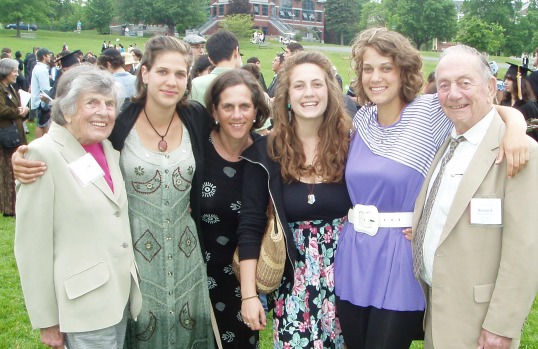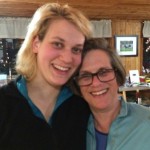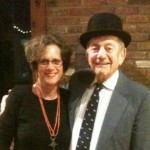
The “Middle” in middle ages refers to both the growth of one’s middle and being between the generation that spawned you and the one you raised yourself. Attempts to control the growth of one’s waistline is a Sisyphean task that requires eating less, exercising more, and accepting the inevitable force of gravity. As hard as this can be, it’s a delicious piece of cake compared to being squashed between caring your for your fledging children and helping your aging folks.
What makes this second task most difficult is that neither group really wants your help, even though they often rely on it. My kids are educated, employed and still on my phone plan. They’re in their early twenties; I met a mother who still shares a plan with her forty-year old son. It doesn’t help that the phone companies encourage what is perhaps this last umbilicus between our offspring and us by making it so much more economical to pool our data plans. And I probably wouldn’t mind the expense if only, when I called, the kids would pick up.

“Phone’s old school, Mom,” they tell me. “Text.”
Texting would be a great option with my ninety-year old father, who’s hard of hearing and has trouble even with his adaptive phone. Email is better, but iffy. He’s an engineer who invented the Precision Depth Recorder, essential to submarine navigation, back in age of the vacuum tube. Despite a career solving all kinds of problems – technical, personal, business – he never embraced personal computing, and he left all personal communication to my mother, who’s no longer alive.
Between my kids, who are too busy texting to call home, and my dad, who doesn’t use the phone, I’m left in quiet isolation, where I could worry, if only these dear ones would let me.

But my kids are tremendously competent – and never miss an opportunity to let me know. The implication, of course, is that I’m not, and this may be true. With my dad, I console myself that his auditory and technical deficits make him less vulnerable to the scammers who scheme to separate the elderly from their savings in myriad and nefarious ways. It also helps that he voluntarily gave up his car.
Teaching my kids to drive was perhaps my least favorite parenting task of all-time, and I know my anxiety only made it harder for them; they’re good drivers, nevertheless. And I’m lucky that both my parents turned in their keys on their own.
This is no easy rite of passage for anyone who wants to live independently in a typical American community, predicated on a car in every garage, driveway or curb – and no other way to access shopping, entertainment or services. Elderly parents behind the wheel possibly cause more concern for their middle-aged children than any of the other likely calamities combined. The worry, of course, is not just that the parent might be hurt in an accident, but that so might someone else.
Not so long ago, when my friends and I socialized, we talked about our parenting challenges over lunch; now we talk about our challenging parents over drinks. The zeal with which we once educated ourselves about child development is now turned to the process of aging. It could be useful information for ourselves someday – if we can remember it. Meanwhile, just when I thought I was finished scheduling other people’s dentist appointments, I find myself back on the phone, back in the car, back in the waiting room, reading People Magazine.
Things could be worse; my dad could still live far away. I have lots of friends who spend weekends, vacations and personal days to visit their parents, cramming in errands and chores to help them out in short, stressful spurts. For a while, I was doing that, but six months ago, Dad moved to a senior residence nearby. I can visit him anytime, and I do. We swim together weekly, attend the opera in season, and visit the local museum. My brothers, nieces, aunt and uncle all visit; I host family gatherings the way I once hosted parties for the kids, who are all moving away.
Yes, there’s a bittersweet element to being the caregiver between generations, one that needs me less, another more. But, I won’t be middle aged forever, and I figure I’m paying it forward by paying it back.
Deborah Lee Luskin is the author of the award-winning novel, Into the Wilderness, a love story between a couple in middle age.
I just love reading your blogs.
Liz Sherwood
So nice of you to say so! I love having you read them!
Deborah –
If your dad does not have hearing aids do your best to convince him to get them. My dad resisted for a long time. He finally succumbed and it makes a world of difference – for him and for me! Soon after he got them, we were in the car … he turned to me and asked, “why are you shouting at me?” That’s when he finally realized what life with him had been like pre-ears.
Take care,
Susan.
Hi Susan,
Nice to see you over here!
My dad does have hearing aids, and it is a big relief after a several year hiatus without them. But the truth is, there’s more to hearing than amplification, and my dad has lost a lot of his listening skills over time.
Thanks for reading this blog.
All best,
Deborah.